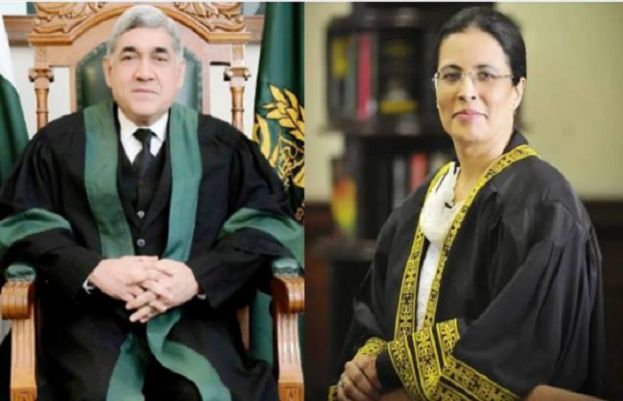In their detailed dissent, the two judges stated that the review petitions filed by the PML-N, PPP, and Election Commission of Pakistan (ECP) were inadmissible, as they were filed against the short order of July 9, 2024, rather than the detailed judgement issued later.
They observed that only the ECP had filed additional petitions after the detailed verdict, while all legal arguments had already been addressed in that judgement.
The dissenting judges also criticised the reconstitution of the bench, calling it inconsistent with judicial norms.
They noted that while the original case was heard by a 13-member larger bench, five judges from that bench, including the author of the main judgement, were excluded from the present bench hearing the review petitions.
This change, they said, was made under Article 191A of the Constitution, which was introduced through the 26th Constitutional Amendment.
Justice Ayesha and Justice Abbasi warned that the new composition of the bench appeared to have been influenced by the political majority within the Judicial Commission of Pakistan, created under the amendment, thereby raising questions over judicial impartiality and transparency.
“If the process of bench formation becomes subject to political influence or lacks transparency, the credibility of the entire judicial system comes into question,” the note emphasised.
The dissenting opinion further underscored that the scope of review is limited, meant only to correct apparent legal errors, not to reopen concluded cases. “Minor irregularities or differences of opinion”, the note said, “cannot form the basis of review.”
The judges observed that many review petitions are often filed merely due to dissatisfaction with a decision rather than genuine legal grounds, and the present petitions by the PML-N and PPP were no exception, as no specific objections were raised against the detailed judgement.
They pointed out that the petitions were filed on July 13, 2024, while the detailed decision came out on September 23, yet no fresh grounds were provided even after that delay.
The dissent also noted that under the 26th Amendment, the Judicial Commission of Pakistan (JCP) gained a government and political party majority, a development they described as a threat to the independence of the judiciary.
“The formation of the current bench appears to have been based on political composition, which goes against the principle of judicial independence,” the judges wrote.
The dissenting note concluded that under the constitution, the Judicial Commission and its committee are duty-bound to form an impartial bench because if the transparency of the bench formation is questioned, the entire judicial process becomes suspicious.

